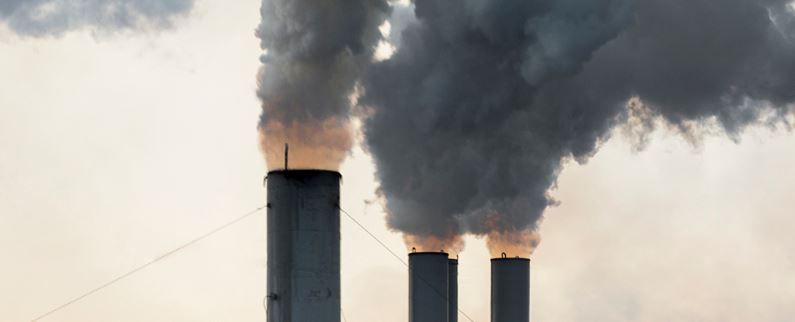


 2:14:28
2:14:28  2024-08-04
2024-08-04  1417
1417

The warning signs are all there: record-breaking heat, failing health, vanishing ice sheets, and more unpredictable weather.
And yet we're still pumping increasing amounts of greenhouse gasses into the atmosphere, threatening our very survival.
A new study by an international team of experts highlights how global methane emissions have been raising rapidly since 2006, particularly since 2020, a trend that's expected to continue unless we do something very drastic very soon.
The study authors have then outlined some strategies countries can use to take action, and developed an online tool to help with this.
This continual climb in methane emissions is largely due to the ongoing use of fossil fuels in preference to cleaner alternatives, the researchers say. It's directly produced by oil, gas, and coal drilling and processing.
The increasing release of methane from natural wetlands, triggered by a hotter climate, is now also contributing.
Methane is produced by landfills, thawing permafrost, and livestock too. The researchers, led by physicist and climate specialist Drew Shindell of Duke University in the US, suggest these are minor contributors at the moment – albeit ones that also need to be closely watched and have some of the largest cost-effective mitigation potentials.
"Worldwide efforts to limit climate change are rightly focused on carbon dioxide, the primary driver," writes the team in their published paper.
"However, since humanity has failed to adequately address climate change for several decades, keeping warming below agreed goals now requires that we address all major climate pollutants."
There is currently much less methane in our atmosphere than carbon dioxide (CO2), but methane is a stronger greenhouse gas.
We know that methane is a major contributor to the warming of the world, trapping heat like CO2 does. It also contributes to the formation of ozone at ground level, increasing the risk of death through respiratory illnesses and cardiovascular diseases.
All these different methane sources need to be urgently looked at, the study finds: methane reduction targets should be applied alongside CO2 reduction targets, and new technologies and policies need to be introduced.
"Rapid reductions in methane emissions this decade are essential to slowing warming in the near future, limiting overshoot by the middle of the century and keeping low-warming carbon budgets within reach," write the researchers.
Warnings from scientists about the state of Earth's climate trajectory are now reaching a deafening level. The question is whether or not humanity is going to heed those warnings before it's too late.
What makes all of this even more dispiriting is that methane mitigation is often actually very cost-effective – certainly compared to the cost of having to deal with the consequences of the climate change that's coming our way.
A change in thinking from governments and organizations is required, say the researchers. The team has created a new online tool to help with methane emission mitigation, which should help to target reductions effectively, and monitor expected improvements.
"Many mitigation costs are low relative to real-world financial instruments and very low compared with methane damage estimates, but legally binding regulations and widespread pricing are needed to encourage the uptake of even negative cost options," write the researchers.
Reality Of Islam |
|

A new lens-

Labor short

A new ultra
 9:3:43
9:3:43
 2018-11-05
2018-11-05
10 benefits of Marriage in Islam
 7:5:22
7:5:22
 2019-04-08
2019-04-08
benefits of reciting surat yunus, hud &
 9:45:7
9:45:7
 2018-12-24
2018-12-24
advantages & disadvantages of divorce
 11:35:12
11:35:12
 2018-06-10
2018-06-10
 6:0:51
6:0:51
 2018-10-16
2018-10-16
 2:42:26
2:42:26
 2023-02-02
2023-02-02
 1:38:41
1:38:41
 2021-12-08
2021-12-08
 4:25:57
4:25:57
 2023-02-11
2023-02-11
 7:26:19
7:26:19
 2022-04-08
2022-04-08
 12:47:1
12:47:1
 2022-12-20
2022-12-20
 10:55:53
10:55:53
 2022-06-13
2022-06-13
 7:59:14
7:59:14
 2018-06-21
2018-06-21
 5:41:46
5:41:46
 2023-03-18
2023-03-18
| LATEST |